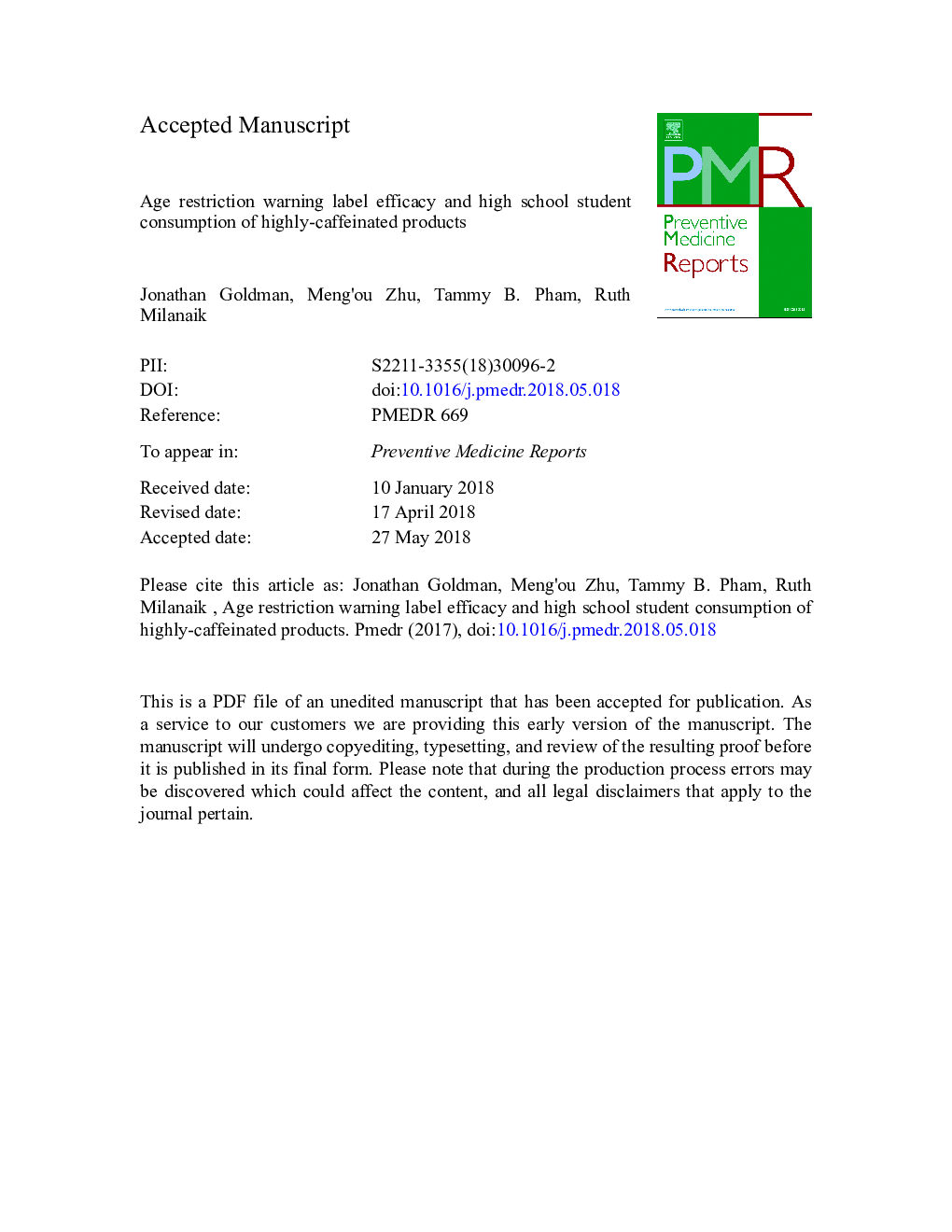| Article ID | Journal | Published Year | Pages | File Type |
|---|---|---|---|---|
| 8818508 | Preventive Medicine Reports | 2018 | 19 Pages |
Abstract
Age restriction warning labels (ARLs) are placed on highly-caffeinated food and drinks, such as Red Bull, to deter consumption by minors who are especially vulnerable to the risks of excessive caffeine consumption. Previous studies have shown that ARLs on media like TV programs and video games fail to discourage minors. However, it is unclear how ARLs on food and drink packages affect minors' purchasing behavior. High school students aged 14 to 17â¯years (nâ¯=â¯150, Mageâ¯=â¯15.2, 51% male) were asked to choose between seven novel product dyads (three food/drink dyads, two movie dyads, and two video game dyads); each dyad contained one product with an ARL and one without. Participants were then asked how ARLs and parental permissiveness of ARL products influenced their decision. Roughly half of the participants selected food and drink products with ARLs. Over two-thirds (69%) of the students reported that they were not discouraged by ARLs on highly caffeinated food and drinks. Participants reported their parents as significantly less permissive of age-restricted food and drink products than of age-restricted media merchandise (pâ¯<â¯.01). Perceived parental permissiveness was not correlated with minors' perception of ARL or simulated product choice. Current ARLs on highly caffeinated food and drink items may be ineffective for adolescents and may actually increase product appeal. Pediatricians should educate patients and parents regarding the health risks of excessive caffeine consumption.
Related Topics
Health Sciences
Medicine and Dentistry
Public Health and Health Policy
Authors
Jonathan Goldman, Meng'ou Zhu, Tammy B. Pham, Ruth Milanaik,
